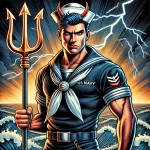New technology… old problems. Everyone seems to agree that if you buy a CD, then you have the right to convert that to other playable media for your own personal enjoyment. But where do we as a society draw the line between stealing and the public domain.
As it has stood since the days of the reel to reel tape machine, you could record music right from the radio, and listen to it at your leisure. You didn’t have to buy the album or cassettee to have a copy of the song that you wanted. Fast forward to 2004 and we find people now able to trade those songs across thousands of miles without even knowing the person on the other end, for free.
The question is, if something is broadcasted over FREE media, then does it become part of the public domain?
The next question is, at what point do we agree that we need to preserve this audio and video history for the next generation?
Really, when was the last time you listened to the radio and heard music from the 50’s? You can’t even buy it at your local record shop or wal-mart. If you want a certain song, you might find it on a swap service (otherwise villified by the record industry as stealing). Yet, these songs are over 50 years old.
Think about the books that are in the public domain. The significant amount of work that has been made available online for you to read is immense, and growing every day. Check out, at the Gutenberg project
There needs to be a realistic expectation between the artists and the public, after all, we are the consumers of the product. While stories and the written word do become public domain after a certain amount of time, other types of art do not. Such as paintings and sculptures. Certainly reproductions are made all the time of famous art, at mere fractions of the value of the original masterpieces.
Yet, what good is hidden art? What good are hidden ideas? Would it be better to destroy the library at Alexandria merely because the books might be reproduced, where another person other than the author would make some money. The fact is that the knowledge, art, and entertainment could be preserved for generations.
I believe in balance. I think that we owe it to ourselves and the next generation to provide our art freely available to the next generation, it is our history, it is our legacy.






